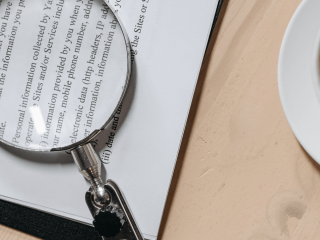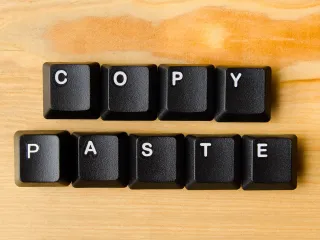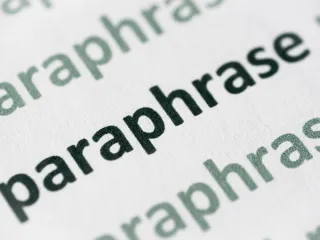What Are Research Skills, and How You Can Improve Them
Original research is an arduous task, no matter how you slice it. Conducting extensive research and collecting relevant information for an original idea is complicated. It involves much more than just reading several recently published papers.
Good research will help you develop a data collection that provides accurate and relevant information to your topic. So, is research a skill that you can develop and improve? What are research skills?
Research skills are the abilities and techniques needed to conduct research. This includes finding and assessing information and properly citing all research. Research skills are fundamental to academic success, and the more you practice, the better you will become.
Research Skills vs. Research Methods
Some people use the terms research skills and research methods interchangeably. Although they relate closely, they are different.
Research skills are a part of the process, but they also take a lot of time to master. Research methods are what you use during the research stages.
For example, one research method may be a literature review. Research skills would involve learning how to conduct the best possible literature review.
You can practice research skills and improve your speed, accuracy, and reliability. Critical thinking, project management, effective note-taking, and time management are great examples of research skills.
How To Improve Your Research Skills
Conducting high-quality research requires mastering several skills. Some of the best skills for good academic research come with practice and experience. You can improve your research skills by using outlines, sources and practicing.
Use Outlines to Your Advantage
An outline is a great way to keep yourself organized and on topic. By paying close attention to the outline you craft, you set yourself up to conduct good research that lends itself to a well-written paper. After all, an outline makes it easier to write your first draft, and a structured approach will improve your writing.
Before you even begin your research, outline what you need to do to complete your paper on time. Start with an introduction, add your first point and then supporting evidence, a second point with its supporting evidence, and then a third, fourth, or fifth, depending on how in-depth your paper will be. The last step will be your conclusion or a summary of your content.
Often outlining will give you ideas for research methods that you may not have considered before. Data collection can be challenging, but devising an outline can make the process much easier.
Because an outline allows you to think about all the topics you need to cover in your paper, you’ll be better prepared when you begin researching.
Dig Into Your Sources
It’s daunting to determine relevant information, especially if it’s a topic that you’re not knowledgeable about. It’s important to know when your sources are reliable for academic research. It’s also imperative to use different sources when finding relevant information, or you may display a bias. This also helps you avoid plagiarism by relying on multiple points of reference.
For example, you should know that an article published in a peer-reviewed journal will be more reliable than an article found on Wikipedia. Wikipedia, though often sourced, is open to be edited by anyone. The sources supplied themselves are not always credible, as the organization largely relies on unpaid editors to donate time to review articles.
A peer-reviewed journal will be fact-checked multiple times, demonstrate a history of credibility, and use reputable sources to support any arguments or claims.
Your sources should also answer the question that you are trying to ask. You should perform a light critical analysis of your source materials to determine their value. This requires investigative thinking and research itself. You need to discover:
- Who wrote the source?
- What was their agenda?
- Who sponsored the publication, if anyone?
- What was the agenda of the publisher?
- Does the publisher have a notable bias?
- Does the author have a notable bias?
- What year was the material published, and has it become outdated?
Try Advanced Search Techniques
Google and other search engines aren’t the only way to find information for your research paper. Library resources offer a wealth of services and tools, such as full-text journals and databases. Your local university library is another excellent place to start.
Often, librarians will be able to assist you with your research and can help you utilize advanced research methods you may not have thought of. They can direct you to the correct database and demonstrate how to best use it to find information about your subject. They may know of specific journals or other literature that could be a good starting point to get your footing.
During your research process, seek a different point of view and new ways to find reliable sources for your paper. When you rely on a single viewpoint or only one credible source, you not only develop a bias by showing just one side of your topic, but you run the risk of plagiarism. Where will your source’s argument end and yours begin? It may appear that you’re simply copying someone else’s hard work.
Practice Makes Perfect
Research isn’t a skill that people learn overnight. But you’d be surprised how fast these skills develop every time you conduct research. Once you get used to collecting data from reliable sources, you can become a master at it by learning from your own research paper mistakes.
One of the most overlooked aspects of research is a person’s time management skills. Those who wait until the last minute to start research run the risk of not finding adequate sources and producing a sub-par product. By giving yourself extra time, especially as you develop your research skills, you allow yourself to thoroughly investigate your sources, find appropriate support for your arguments, and develop a conclusion based on research, rather than trying to scramble to find research to support a specific conclusion.
6 Steps for Conducting Research
Conducting research isn’t easy, and many people find it frustrating. It can be like solving a puzzle to uncover the best information about the topic you’re researching. Here are 5 steps to help with your research strategy.
- Clearly define your research question. Precisely formulate your question so you know exactly which information sources are relevant to your research. This will save you lots of time.
- Draft a solid outline. Put your research question at the top of the document, then write out each of your supporting points or arguments. Include a few thoughts that go with each of those points.
- Determine the research methods you’ll use. Depending on the type of research paper you’re writing, you may need primary or secondary research. Your research will likely be either qualitative, quantitative, descriptive, or experimental.
- Find data from reliable sources. Make sure your resources are reliable by looking for things like the date of publication, author credentials, and publisher.
- Focus on your note-taking. Take detailed notes in whatever format you’re most comfortable with, whether that’s on your computer, tablet, or by hand in your notebook or on index cards.
- Draft your research paper. Combine your notes with a solid outline, and put it all together. Don’t forget to cite all of your sources. Give your paper a final review, then you’re done!
Final Thoughts
Conducting research can be a frustrating assignment. Here is the good news: the above steps and tools will make research report writing more effective.
By clearly defining your research question, determining the type of research methods you’ll use, and finding data from reliable sources, you’ll be on your way to conducting successful research.
Your last steps should be using a plagiarism detector and a citation generator, to double-check your work. Quetext is an online plagiarism checker with a built citation generator, so you can easily cite everything that you read.









